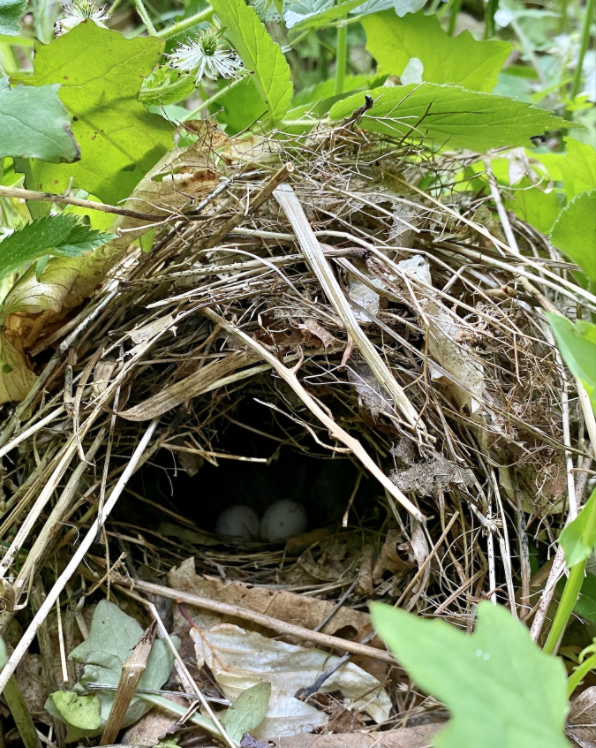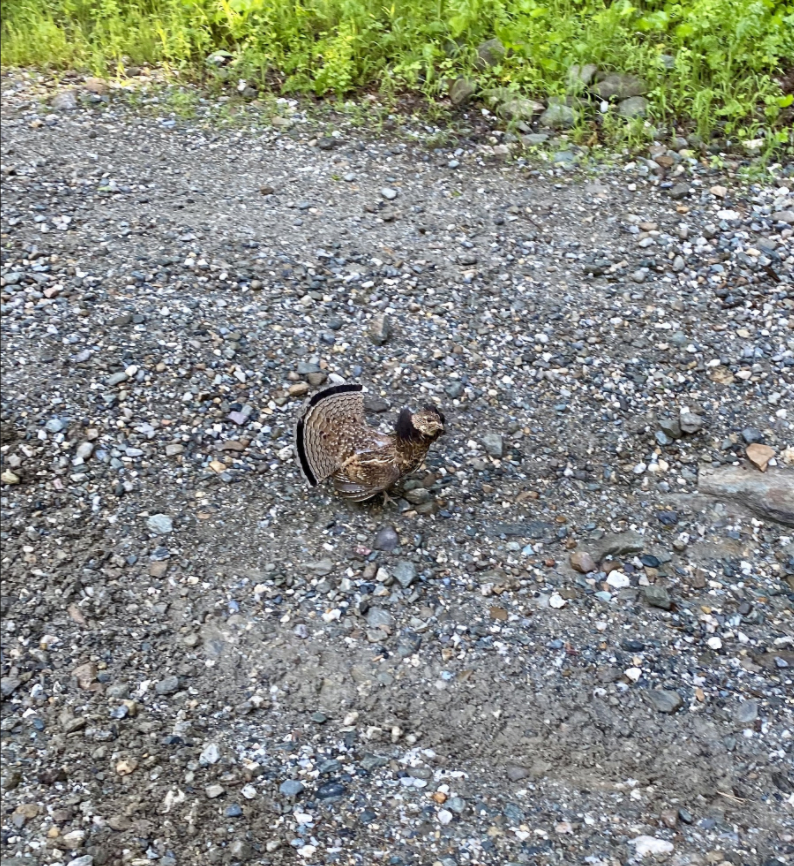
A feat of avian architecture, this Ovenbird nest was discovered by Kent McFarland and Ethel Weinberger on a Birder Broker survey in Windsor, VT. © Kent McFarland
After a COVID-canceled field season in the summer of 2020, Birder Broker volunteers were eager to get together for their three bird monitoring walks this past June and July. If you haven’t heard, Birder Broker is a joint program run by Vermont Center for Ecostudies and Bridget Butler of Bird Diva Consulting that acts as a matchmaker for curious landowners and experienced birders. Landowners get to learn firsthand about the bird species their forests provide a home for, and birders get to explore a brand new area with the folks who call it home! With over 80% of forested land in Vermont privately owned, these surveys also act as a valuable tool to help figure out how forest bird populations are doing in areas that are frequently under-surveyed due to lack of access.
Birder Broker’s second season was a huge success, with 20 birders visiting 23 properties across the state and submitting a complete Vermont eBird checklist with each visit. On these repeated, approximately one-mile loops, Birder Broker volunteers kept track of how many species and individuals they heard and saw, making note of any breeding behaviors observed. While some landowners already had quite a bit of birding experience, many were able to experience for the first time what it’s like to walk through the woods with someone helpfully pointing out each bird singing or flitting among the treetops. From aggressive Ruffed Grouse parents, to expertly camouflaged Ovenbird nests, Birder Broker volunteers got to experience some truly special examples of breeding bird behavior.

A territorial Ruffed Grouse makes his presence known to two Birder Broker volunteers on a survey in Starksboro, VT. © Beagle Bourgault
Observations of breeding behavior, such as this Dark-eyed Junco nest full of eggs, or a Red-eyed Vireo carrying caterpillars back to its nest, are crucial to understanding which species of birds are breeding in an area. Landowners who get to know which species of birds are breeding and raising young right in their backyards can then make informed decisions about forest management to support as many species of breeding birds as possible. One of the best ways to keep track of breeding bird behavior just so happens to be built right into Vermont eBird—Breeding Codes. These codes allow birders to note specific behaviors that indicate whether a bird is possibly, likely, or definitely breeding in an area. For example, a fiery-orange male Blackburnian Warbler singing his high-pitched song would indicate that he is possibly breeding nearby, an observation of a male Blackburnian Warbler associating closely with a female Blackburnian Warbler would indicate that pair is probably nesting in the area, and an observation of a female Blackburnian Warbler hunkered down on a nest would obviously confirm breeding activity.
Using these codes, Birder Broker volunteers were able to determine that more than half of the 100 species of birds reported during the 2021 Birder Broker field season were confirmed (35 species) or probable (26 species) breeders. From recently fledged Ruffed Grouse chicks wandering the forest floor to a territorial pair of Mourning Warblers chattering away in a thick tangle of vines, there was no shortage of exciting bird behaviors witnessed by Birder Broker volunteers during this successful field season. As fall migration winds down and birds that were fledged in backyards across Vermont complete their first migration south, we’d like to take this opportunity to thank all of the landowners that welcomed Birder Broker volunteers to their property, and all our birder volunteers for conducting thorough and informative bird surveys on private properties across the state!
To learn more about Birder Broker, please visit the homepage here.
